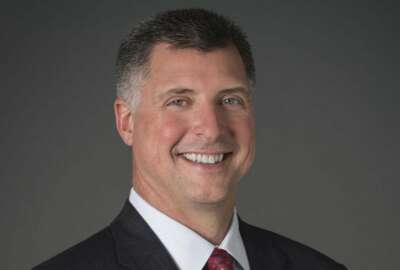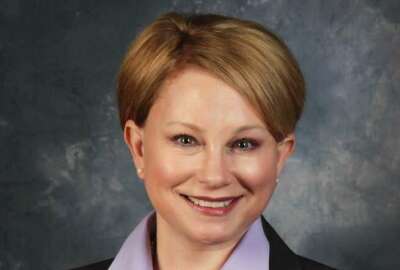
The pandemic has hit one federal group harder than most, children of military service members
It was already difficult being the child of an active duty military member. Long periods of separation, frequent moves, or a parent injury or loss. The pandemic has...
Best listening experience is on Chrome, Firefox or Safari. Subscribe to Federal Drive’s daily audio interviews on Apple Podcasts or PodcastOne.
It was already difficult being the child of an active duty military member. Long periods of separation, frequent moves, the danger a parent could be injured, or worse. The pandemic has magnified those issues, as Federal Drive with Tom Temin heard from the senior director of strategic partnerships at the military service organization Semper Fi and America’s Fund, Greg Frey.
Interview transcript:
Tom Temin: Greg, good to have you on.
Greg Frey: Hey, thanks, Tom.
Tom Temin: And what have you seen in terms of the effects on families that we know already we’re extant from being military families and children, but magnified by the pandemic?
Greg Frey: Tom, thanks for asking. That’s a great question. So again, as you mentioned, there are already challenges for these military families in these military children with moves, deployments, transition, and COVID is really exacerbated those challenges. Really with a quarantine and a social isolation, we’ve really had to work hard to provide other means to connect with these children, and have them connect with each other, and have them connect with communities.
Tom Temin: And the other issue I imagine is the children being home, because they can’t go to school, still, I guess, in most places. And so you have the spouse who may be working because out of necessity for many members, the spouse has to work because of military pay levels. And so now, that must be tough to have the kids at home and trying to keep that income coming in.
Greg Frey: Yeah, that’s absolutely right, Tom. So there’s a couple of facets to that for where we can step in. One is financial assistance. So again, we provide needs based tailored financial assistance, and again with COVID-19 and impact on spouse employment, other demands on the household, increased financial stressors, we will step in alongside these families. And we will provide tailor financial assistance, medical costs, rent, mortgage, schooling expenses, will step in and assist with that from a financial perspective. But equally importantly, we’ll step in from an emotional perspective from a connection perspective. And we’ll put on virtual events, we will have events geared specifically toward these kiddos part of its getting them up and moving. So we’ll do Zoom yoga. We’ll work on sort of hobbies and passions in their life, whether it be gardening, cooking. We’ll host back to school events and also provide school supplies.
Tom Temin: And where do your sources come from to help support the organization in the first place?
Greg Frey: Yeah, great question, Tom. So absolutely, our work would not be possible without our generous supporters, from the individuals, to corporate sponsors to foundations, we’re incredibly grateful for these financial resources. And we’re proud of the fact that we are A+ rated charity, one of only two military charities with that rating. And we work very hard to keep down our overhead. So since inception, since 2004, we’ve typically run at about 7% overhead for fundraising admin costs, that means about 93% of the funding is gonna go to programs and services to these men and women and families.
Tom Temin: And give us some of these statistics here. How many children might be potentially affected by issues that go to military children? And what are some of the other family concerns based on surveys that you’ve done?
Greg Frey: Yeah, absolutely. So generally speaking, right now, there’s about 1.2 million military children of active duty service members worldwide. And then if you consider guard and reservists, then that’s going to really get it about 2 million dependent children. So that’s a lot of kiddos who are facing challenges that we mentioned. And in terms of children who have experienced post 9/11 deployments, there’s about 2 million kiddos whose parent has deployed the combat post 9/11. So that’s a pretty staggering number of children are across the country.
Tom Temin: We are speaking with Greg Frey, senior director for strategic partnerships for the Semper Fi and America’s Fund. Describe the phenomenon of secondary PTSD. Apparently, this is something that children get, and that maybe we’re not all that aware of.
Greg Frey: No, that’s right, Tom. So again, children in the household was servicemembers with physical, mental or emotional injuries, that’s a different dynamic in the house. Right? So the children are in the house with a parent who is changed physically, who’s changed emotionally, who’s moving along in their journey, and that’s going to have an impact on the kids, that’s going to add to their stressors. And oftentimes, what we’re seeing is children can be the caregivers for the service member or veteran, so they’re taking on responsibilities far beyond their years. So again, that’s going to have an impact on them. Physically and emotionally, an absence and tailor programs, some connections, really those kids are not going to be able to thrive, live the fullest life they can, succeed in school, and really continue on their journey. So again, it is a challenge. But is absolutely possible. And what we’re doing is providing tailor programs and services to meet these kiddos where they are. And every military child, every veteran, every service member is going to be on their own journey. And so we’re able to tailor our support, per individual, and really walk alongside that man or woman, family member, or child.
Tom Temin: And when it comes to deployment, I guess the model most people instinctively have in their mind is the father going away for deployment and the mom home alone. But in the modern military, it could be the wife who is deployed with dad home with the kids. Does that present special challenges?
Greg Frey: Yeah. So Tom, we are seeing the impact of it’s not just dad deploying, it is mom deploying, and that’s a different dynamic. And so really, we can step in and still support that family. We are proud of the women in the military and their service and their deployment. But recognizing that adds a little bit of a different dynamic in the house. And the other thing to mention is sometimes both parents are in the military. And so we have to contend with that as a society as well.
Tom Temin: But I imagine the military has policies that mitigate against both parents deploying at the same time.
Greg Frey: Yeah, absolutely. Again, there are policies in place and there are policies and procedures to mitigate, against that situation. But again, even absent deployments, when mom and dad are both wearing the uniform, still, those are added dynamics in the house.
Tom Temin: And we talked about PTSD in the case of children. Apparently, there’s evidence that even suicide comes to mind to children of military families. Pretty horrible thing to contemplate.
Greg Frey: Yeah, absolutely Tom. We are seeing, suicide rates and military children. It is a tragic side effect of our military. And again, what these military children are seeing and experiencing in the household, and again, that’s why we believe these connections, with us, with each other, with communities, and really getting upstream of these stressors for the military children and military families. So that’s why we really believe in our model, which is really bedside to transition back to communities to really providing programs and services that allow these families, servicemembers, and children to thrive.
Tom Temin: Greg Frey is senior director of strategic partnerships for the Semper Fi & America’s Fund. Thanks so much for joining me.
Greg Frey: Hey, thanks, Tom. Thanks for having me. And really I just, it’s an honor to represent Semper Fi and America’s Fund, and more importantly, it’s an honor to be on the call with you to represent the men and women, families, caregivers, and military children we serve. They are the true heroes in this story. And we’re also incredibly grateful for our supporters.
Copyright © 2025 Federal News Network. All rights reserved. This website is not intended for users located within the European Economic Area.
Tom Temin is host of the Federal Drive and has been providing insight on federal technology and management issues for more than 30 years.
Follow @tteminWFED






